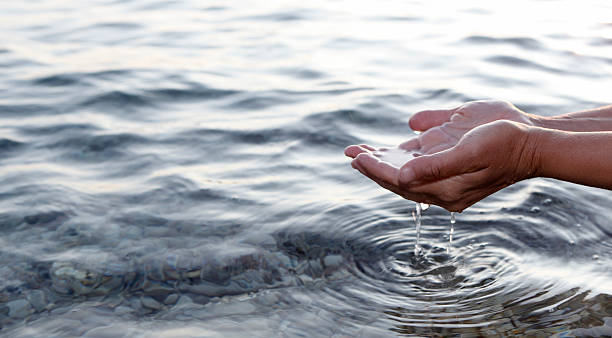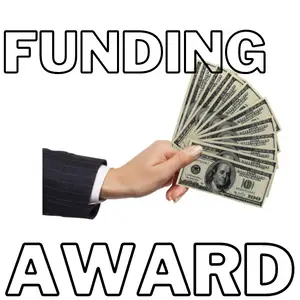Marine grants are financial awards allocated to support the conservation, research, and sustainable development of marine and coastal environments.
These grants play a pivotal role in preserving biodiversity, addressing climate change, and enhancing the livelihoods of communities dependent on marine resources. Let’s dive into the world of marine grants, exploring their importance, sources, and impact.
The Importance of Marine Grants
The ocean covers more than 70% of the Earth’s surface and is home to a vast array of life. It regulates our climate, provides food for billions of people, and supports a rich biodiversity essential for ecological balance. However, marine environments face significant threats from overfishing, pollution, habitat destruction, and climate change. Marine grants fund initiatives that tackle these challenges head-on, supporting projects that aim to:
1. A Lifeline for Biodiversity
Marine grants are pivotal in preserving the rich tapestry of life beneath the waves. The ocean is home to a staggering array of species, many of which are yet to be discovered. From the smallest plankton to the majestic blue whale, each organism plays a crucial role in the marine ecosystem. Marine grants fund projects that protect these species and their habitats, ensuring the maintenance of biodiversity which is vital for ecological resilience and the health of our planet.
2. Championing Sustainable Practices
Overfishing and unsustainable aquaculture practices have depleted fish stocks and damaged marine ecosystems. Marine grants support initiatives that promote sustainable fishing and aquaculture, ensuring that the ocean’s resources can regenerate and remain viable for future generations. By funding the transition to sustainable practices, these grants not only help preserve marine life but also support the livelihoods of millions who depend on the ocean for food and income.
3. Advancing Ocean Science and Innovation
The ocean is a frontier of discovery, holding answers to some of the most pressing environmental challenges of our time. Marine grants are crucial in advancing scientific research and technological innovation. They fund studies that explore the impacts of climate change on marine ecosystems, develop new methods for conservation, and create sustainable solutions for marine pollution. This research is essential for informing policy, guiding conservation efforts, and fostering innovation that can lead to a more sustainable relationship with our oceans.
4. Fostering Resilient Coastal Communities
Coastal communities are on the frontline of climate change, facing rising sea levels, increased storm intensity, and the degradation of marine resources they rely on. Marine grants support projects that enhance the resilience of these communities. From restoring mangrove forests that protect shorelines from erosion to developing sustainable livelihoods that reduce pressure on marine resources, these grants empower communities to adapt to changing conditions and safeguard their futures.
5. Contributing to Climate Change Mitigation
The ocean plays a critical role in regulating the Earth’s climate, absorbing a significant portion of the carbon dioxide emitted by human activities. Marine grants fund the conservation and restoration of blue carbon ecosystems, such as mangroves, seagrasses, and salt marshes, which are highly effective at sequestering carbon. Protecting these ecosystems not only helps mitigate climate change but also protects biodiversity and supports coastal protection and fisheries.
6. Uniting Global Efforts
Marine grants bring together governments, non-profits, academia, and communities towards a common goal: the sustainable management and conservation of marine resources. They facilitate collaboration across borders, disciplines, and sectors, uniting diverse stakeholders in the effort to protect the ocean. By pooling resources and knowledge, marine grants amplify the impact of conservation efforts, demonstrating the power of collective action in tackling global challenges.
List of Foundations Awarding Marine Grants
1. The Pew Charitable Trusts
Mission Focus: The Pew Charitable Trusts is renowned for its commitment to marine conservation, focusing on protecting ocean environments and preserving marine biodiversity. Through its marine conservation program, Pew supports initiatives that aim to establish marine protected areas, enforce sustainable fishing policies, and protect vulnerable marine species.
2. The Ocean Foundation
Mission Focus: As a unique community foundation with a global focus, The Ocean Foundation advances marine conservation through a variety of initiatives. It supports projects related to ocean acidification, blue carbon habitats, sustainable aquaculture, and community-led conservation efforts, fostering a healthy relationship between humans and the ocean.
3. The David and Lucile Packard Foundation
Mission Focus: The foundation’s Ocean and Coastal Conservation program emphasizes sustainable fisheries, marine biodiversity protection, and climate change mitigation. The David and Lucile Packard Foundation invests in science-based solutions, policy reforms, and innovative practices to ensure the long-term health of marine ecosystems.
4. The Gordon and Betty Moore Foundation
Mission Focus: With a deep commitment to environmental conservation and science, the Gordon and Betty Moore Foundation supports initiatives that promote healthy marine ecosystems, sustainable fisheries, and the conservation of critical marine habitats. The foundation focuses on science-driven solutions to address pressing environmental challenges.
5. The Walton Family Foundation
Mission Focus: The Walton Family Foundation aims to balance conservation needs with those of communities that rely on the ocean for their livelihoods. Its marine initiatives include creating sustainable fisheries, restoring critical habitats like coral reefs and wetlands, and supporting effective coastal and marine management practices.
6. The Leonardo DiCaprio Foundation
Mission Focus: Part of the larger philanthropic efforts of Earth Alliance, The Leonardo DiCaprio Foundation is dedicated to the long-term health and wellbeing of the Earth’s inhabitants. By funding projects that restore and protect key ocean ecosystems, the foundation aims to ensure a resilient and thriving planet for future generations.
7. The Paul G. Allen Family Foundation
Mission Focus: With a keen interest in ocean health and conservation, The Paul G. Allen Family Foundation supports innovative projects that address critical challenges facing the ocean. This includes research on climate change impacts, conservation of endangered marine species, and efforts to enhance ocean health.
8. The Schmidt Ocean Institute
Mission Focus: Founded by Eric and Wendy Schmidt, this institute focuses on advancing oceanographic research, discovery, and knowledge sharing. Through its support for cutting-edge marine science and technology, the Schmidt Ocean Institute aims to foster a deeper understanding of the ocean.
9. The National Geographic Society
Mission Focus: Through its Pristine Seas project and other marine initiatives, The National Geographic Society funds exploration, conservation, and research efforts that aim to protect the ocean’s last wild places and highlight the importance of biodiversity.
10. The Blue Marine Foundation
Mission Focus: The Blue Marine Foundation (BLUE) dedicates itself to fighting overfishing and the destruction of biodiversity. It is deeply involved in creating marine reserves, developing sustainable fishing models, and restoring marine habitats.




